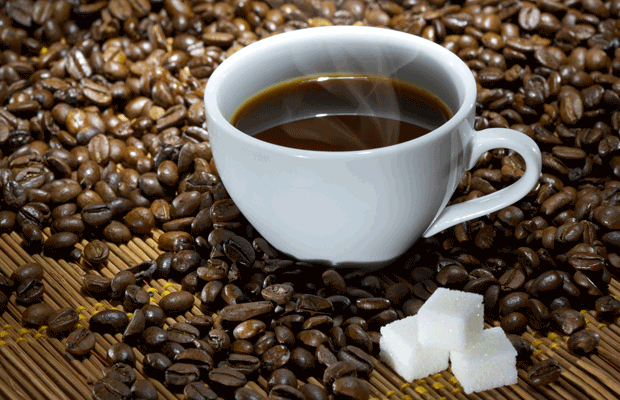
Let’s cut straight to it. You’ve probably downed a cup of coffee (or three) and felt that burst of energy. But could that buzz also help shrink your waistline? Caffeine isn’t just a pick-me-up. It’s one of the most researched natural stimulants on the planet — and yep, it’s hiding in your coffee, tea, chocolate, and many fat-burning supplements. But here’s the big question: can it actually help you burn fat or lose weight?
Let’s break it down — step by step, myth by myth, cup by cup.
How Caffeine Can Help with Weight Loss
1. Caffeine Can Rev Up Your Metabolism

Your metabolism is the engine that burns calories, even when you’re resting. And guess what? Caffeine throws fuel on that fire. Studies show it can increase your resting metabolic rate by 3% to 11%, depending on the person. That means you’re burning more calories — even while scrolling through your phone.
But don’t assume this boost lasts forever. Over time, your body adapts to regular caffeine use, which makes the effect weaker. If you’ve been drinking coffee daily for years, you might not notice a big change in your metabolism anymore.
That said, using caffeine strategically — like before workouts or after a restful sleep — can still deliver noticeable results. It’s not about chugging endless lattes. It’s about timing and moderation. Used wisely, caffeine can be that extra push your metabolism needs to get moving faster.
2. It Helps Unlock Stored Fat for Energy
Here’s where caffeine earns its fat-burning reputation. When you consume it, caffeine stimulates your central nervous system, which signals fat cells to break down and release fatty acids into your bloodstream. Think of it like caffeine knocking on the fat cell’s door and saying, “Hey, time to go!”
But here’s the catch: releasing fat isn’t the same as burning it. Your body only uses those fatty acids as fuel if you’re active. Otherwise, they float around and eventually settle back where they came from. This is why caffeine and movement go hand-in-hand for fat loss.
To maximize this effect, take caffeine 30 to 60 minutes before exercise. This gives your body time to unlock fat and actually use it as energy. The combo of caffeine plus movement? It’s one of the most natural fat-burning hacks available — and it works.
3. Caffeine Can Tame Hunger… Sometimes
Caffeine doesn’t just wake up your brain — it can dial down your appetite, too. Some studies suggest that it temporarily reduces feelings of hunger by affecting the hormones that control it. You might notice you’re less tempted to snack after your morning coffee. And yes, that’s a win.
But it’s not a magic fix for emotional eating. Caffeine’s appetite-suppressing powers are short-lived and vary wildly from person to person. For some, it curbs cravings. For others, it makes them jittery — and reaching for comfort food becomes more tempting than ever.
The takeaway? Don’t rely on caffeine to replace meals. Use it as a tool to create better timing or to hold off unnecessary snacking — especially late at night or mid-afternoon. But always listen to your body, not just the buzz. Hunger is still a real signal, not just a caffeine glitch.
4. It Supercharges Your Workout Performance

Caffeine and workouts? They’re best friends. Research shows caffeine improves everything from endurance to strength to focus. That means longer gym sessions, more reps, and better effort overall. Translation? More calories burned and more muscle built — both key players in long-term fat loss.
The sweet spot for performance? About 200mg of caffeine 30 minutes before exercise. That’s roughly one strong cup of coffee. It kicks in right when you need it — during warm-up and early sets — and can keep you going when you’d normally tap out.
Don’t overdo it, though. Too much caffeine pre-workout can lead to shaky hands or a racing heart. Start low, find your dose, and stick with clean sources. Used correctly, caffeine turns your workouts into fat-burning machines — and makes pushing through the hard stuff a little more doable.
Important Considerations
Caffeine can give your weight-loss efforts a noticeable boost — but that doesn’t mean it’s all upside. Not all caffeine sources are equal, and how you use it matters. Timing, tolerance, stress, and even personal health play a big role in whether caffeine helps or hurts. Let’s break down a few things you need to think about before turning to caffeine as your fat-loss sidekick.
Not All Caffeine Sources Are Created Equal
Sure, caffeine is caffeine. But what it’s mixed with makes a massive difference. A black coffee is worlds apart from a sugary iced mocha. One supports fat-burning, the other sneaks in hundreds of extra calories that cancel out the benefits.
Smart choices include:
- Black coffee
- Green or black tea
- Espresso
- Unsweetened yerba mate
Things to avoid? Fancy lattes, energy drinks loaded with sugar, and flavored coffee syrups. They don’t just spike your blood sugar — they nuke your calorie deficit. That’s not weight-loss friendly.
Bottom line: Choose natural, low-calorie sources if fat burn is the goal. Skip the trendy coffee shop drinks unless you want dessert in disguise. Be picky with your buzz.
Timing Your Caffeine Makes a Huge Difference
Caffeine can work with your body — or totally mess with it, depending on the clock. The same dose that fires you up at 10 AM could ruin your sleep if taken too late in the day. Timing is everything.
The sweet spot for fat loss?
- Morning (before breakfast or walk)
- Pre-workout (30–60 minutes before training)
- Early afternoon (to avoid the post-lunch slump)
Avoid caffeine 6–8 hours before bed — even if you “sleep fine.” Sleep quality matters more than just falling asleep. And poor sleep kills fat loss faster than a skipped workout.
Strategic timing gives caffeine its power. Random chugging doesn’t. Use it to match your energy dips, not to fight exhaustion. Your body will thank you — and your waistline might, too.
Stress and Poor Sleep Cancel Out the Benefits
You might think caffeine is your ally during busy, stressful weeks. But here’s the kicker — if you’re already running on fumes, it can backfire. Caffeine ramps up cortisol, the same stress hormone that makes your body store fat, especially around the belly.
Lack of sleep adds fuel to the fire. When you’re tired, your body craves junk, your insulin sensitivity drops, and your hunger hormones go wild. Add caffeine to that mess and it’s like pouring gas on a stress fire.
If you’re constantly anxious or burned out, caffeine won’t save you — it might sabotage you. Focus first on sleep, hydration, and stress control. Once those are dialed in, then caffeine becomes helpful.
Bottom line: Caffeine is a tool — not a Band-Aid. Don’t use it to patch over poor habits. Fix the foundation, and the caffeine boost will actually work.
Not Everyone Should Use Caffeine for Weight Loss
This isn’t one-size-fits-all. Some people just don’t handle caffeine well — and that’s okay. It’s not worth risking your health for a slight metabolism bump. If your body doesn’t like it, there are other ways to lose weight.
Who should think twice?
- People with heart issues
- Those with anxiety or panic disorders
- Pregnant or breastfeeding women
- Anyone on medications that clash with stimulants
If caffeine makes you feel rushed, dizzy, panicked, or shaky, that’s a red flag. No fat-loss boost is worth feeling awful or messing with your heart rhythm. Your long-term well-being matters more than short-term calorie burn.
Talk to a healthcare pro before starting caffeine if you fall into one of those groups. There are safer, calmer paths to fat loss that don’t include a caffeine rollercoaster. Listen to your body — it usually knows best.
Absolutely! Here’s Section 13 rewritten to be around 170 words, following your <review_style> — conversational, engaging, value-packed, and formatted with bold emphasis and heterogeneous paragraphs.
What Does the Research Say?
Let’s get one thing clear — caffeine isn’t hype. It’s one of the most studied substances in the world, and yes, research backs its role in fat loss. But there’s a little nuance you should know before you crown it king of weight-loss miracles.
First off, caffeine temporarily increases metabolism. Studies show it can raise your calorie burn by 3% to 11%, especially in people who don’t use it regularly. That’s real. But the effect fades if your body gets used to it.
It also helps your body use more fat as fuel during workouts, particularly if taken 30–60 minutes beforehand. Combine that with improved energy, focus, and endurance — and suddenly, your workouts become way more effective.
Now here’s the kicker: no study shows caffeine alone leads to long-term fat loss. It helps, yes — but only when paired with solid habits like clean eating, daily movement, and proper sleep.
Science gives caffeine a thumbs-up — just not a free pass. It’s a helper, not a hero. Use it wisely.
Step-by-step Guide How to Use It Wisely
Caffeine isn’t just about gulping coffee and hoping for the best. If you want real results, you’ve got to be smart about how you use it. Timing, dose, source — it all plays a role. Think of caffeine as a tool: use it correctly, and it helps you build. Use it wrong, and it just adds noise. Here’s your step-by-step guide how to make it work for you.
- Start with a clean source — black coffee or green tea.
- Use it pre-workout for max fat burn.
- Don’t exceed 400mg/day — and monitor how you feel.
- Skip it after 3PM to protect your sleep.
- Take breaks to avoid tolerance buildup.
- Watch for sugar and creamers that ruin the calorie benefit.
- Don’t expect miracles — pair it with healthy habits.
Final Sip of Advice
So, can caffeine help with weight loss? Yes — but not by itself. It boosts your metabolism, helps your body tap into fat stores, and gives you the energy to move more and train harder. But here’s the truth: caffeine is a sidekick, not the superhero. It amplifies what you’re already doing — it doesn’t replace discipline, effort, or sleep.
If you treat caffeine like a magic pill, you’ll be disappointed. But if you use it strategically, like before workouts or during energy slumps, it can make your healthy habits easier to stick to. And that’s where the real power lies — in consistency. No stimulant in the world beats showing up daily.
So sip smart, move often, eat well, and rest deeply. Let caffeine push you — not carry you. You’re in control here. Not the coffee, not the tea, not the supplements. Just you — and that’s more than enough to get results.